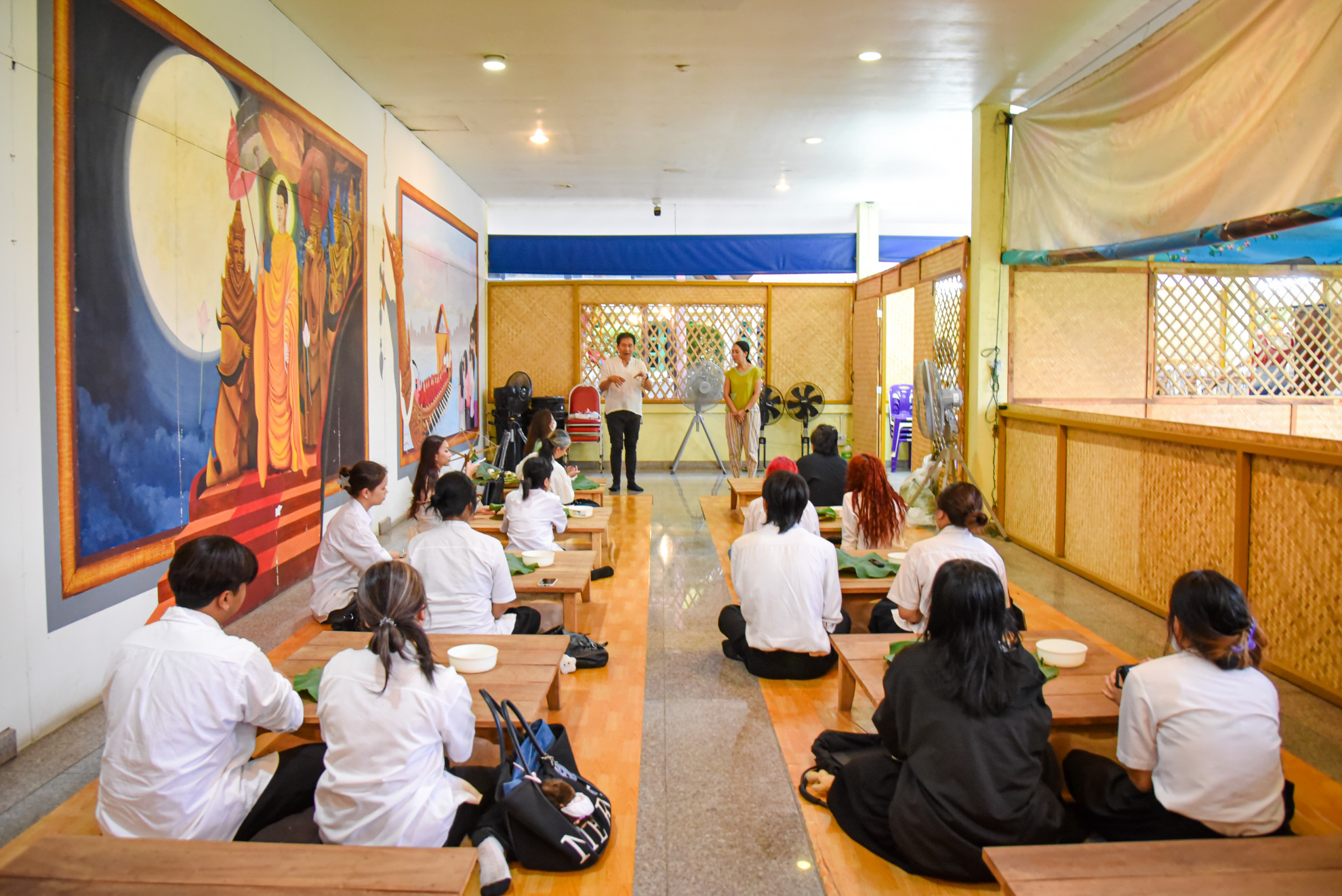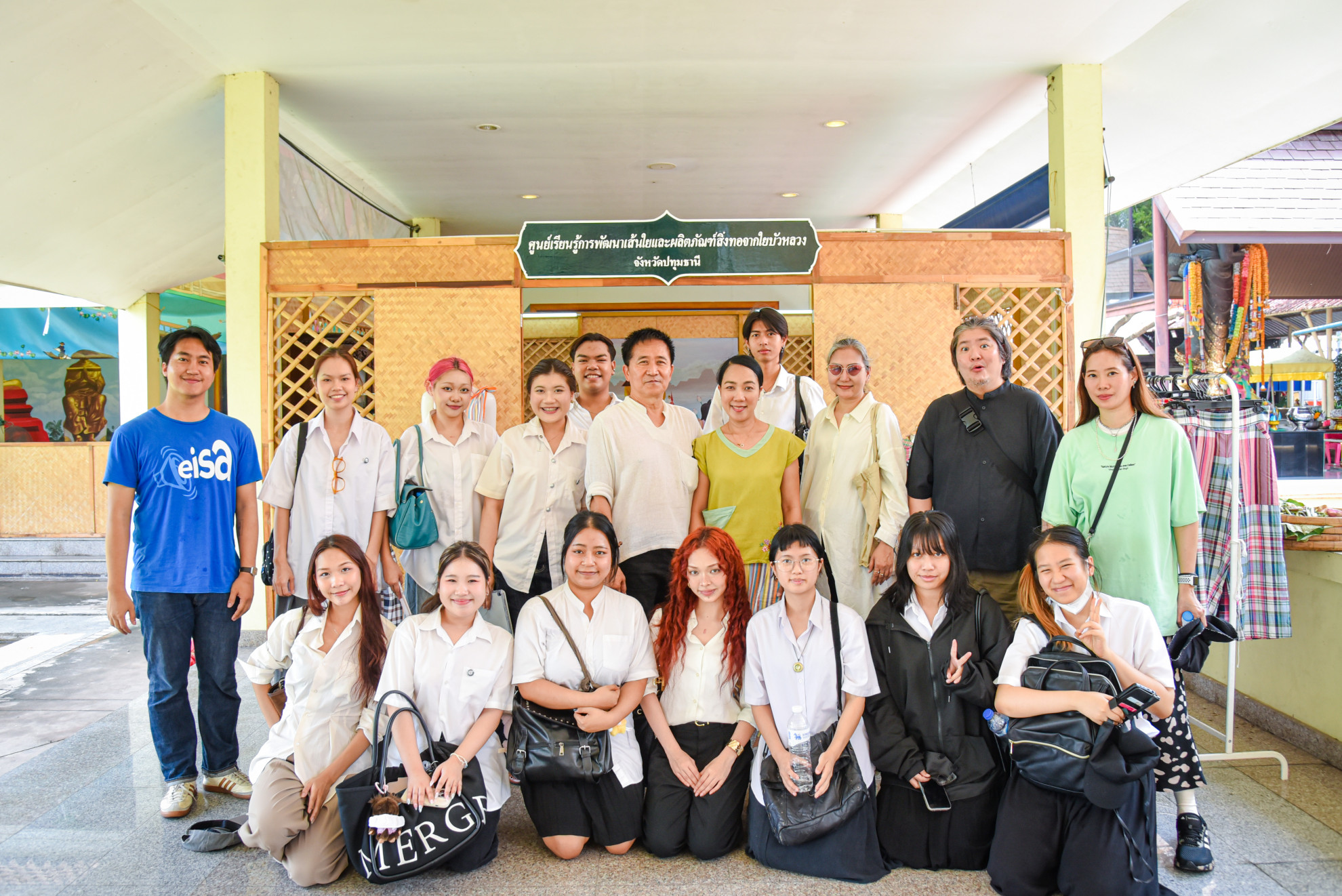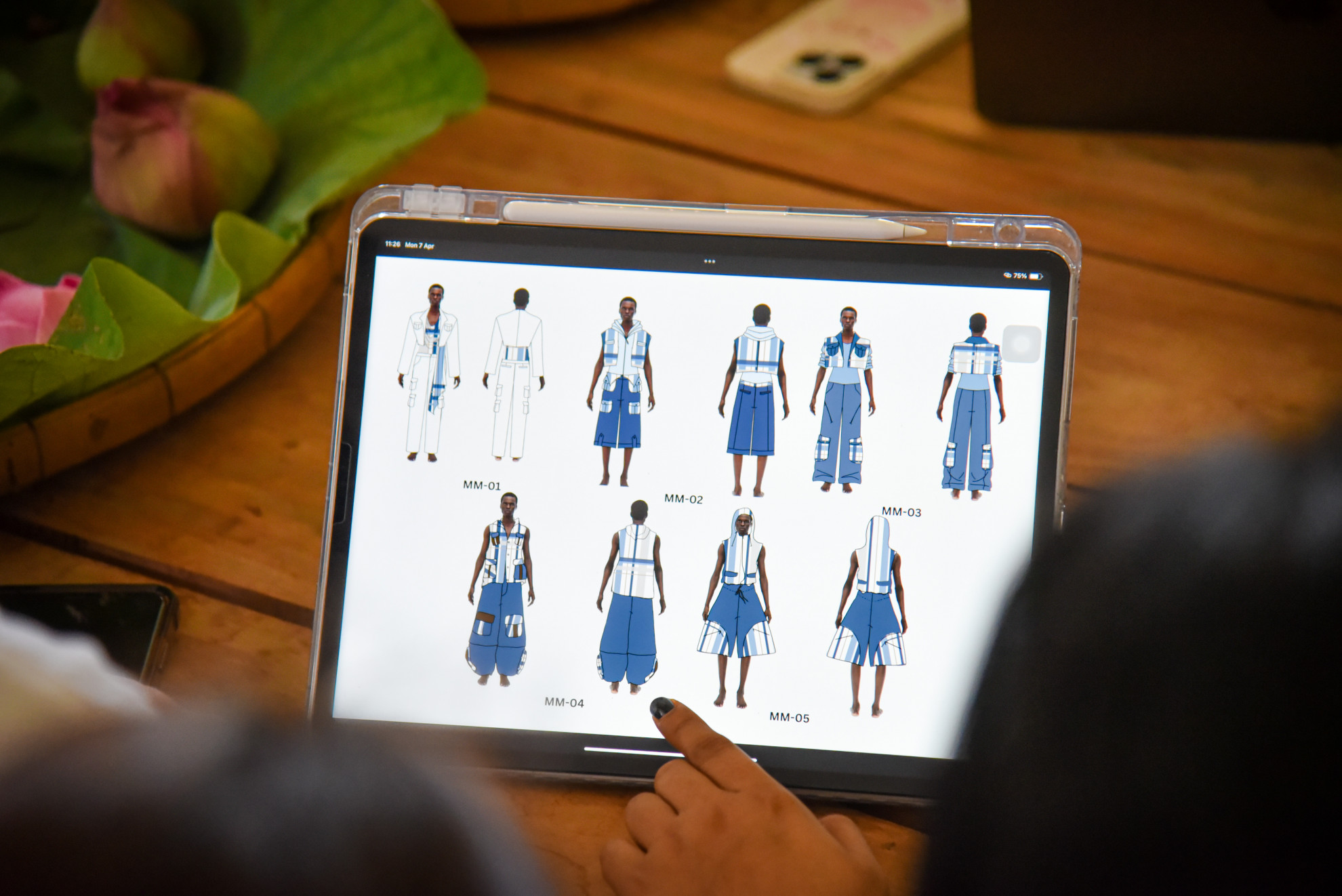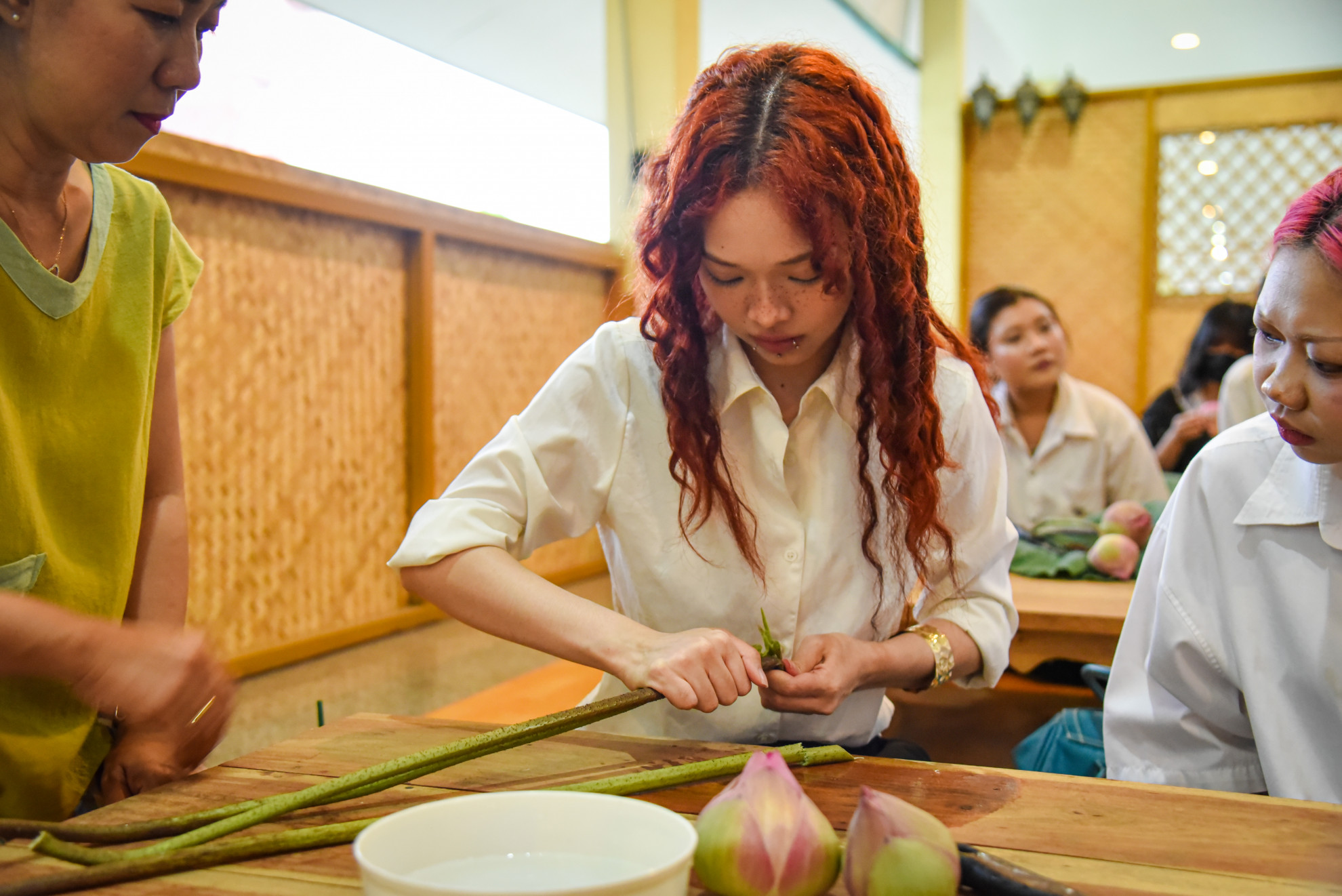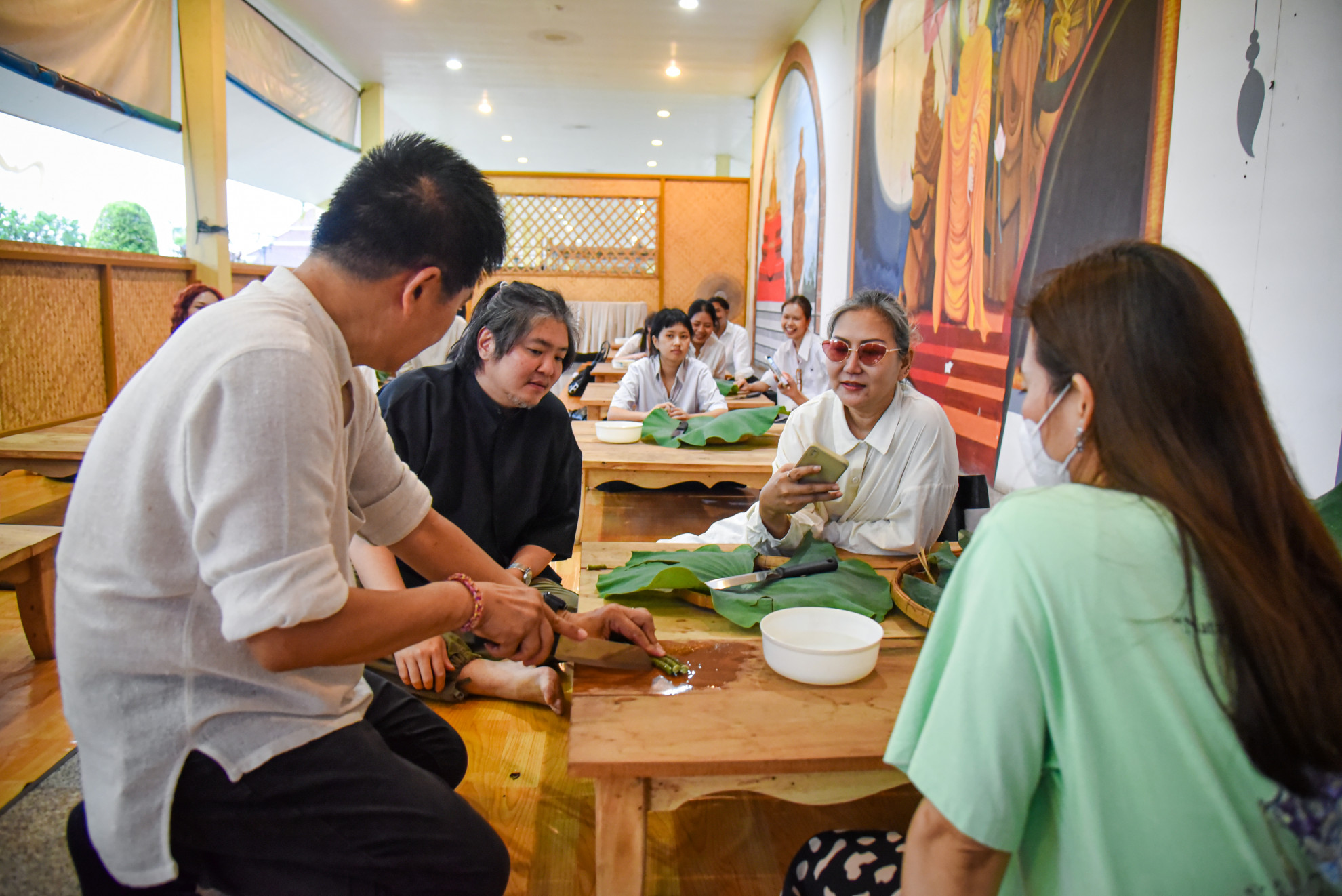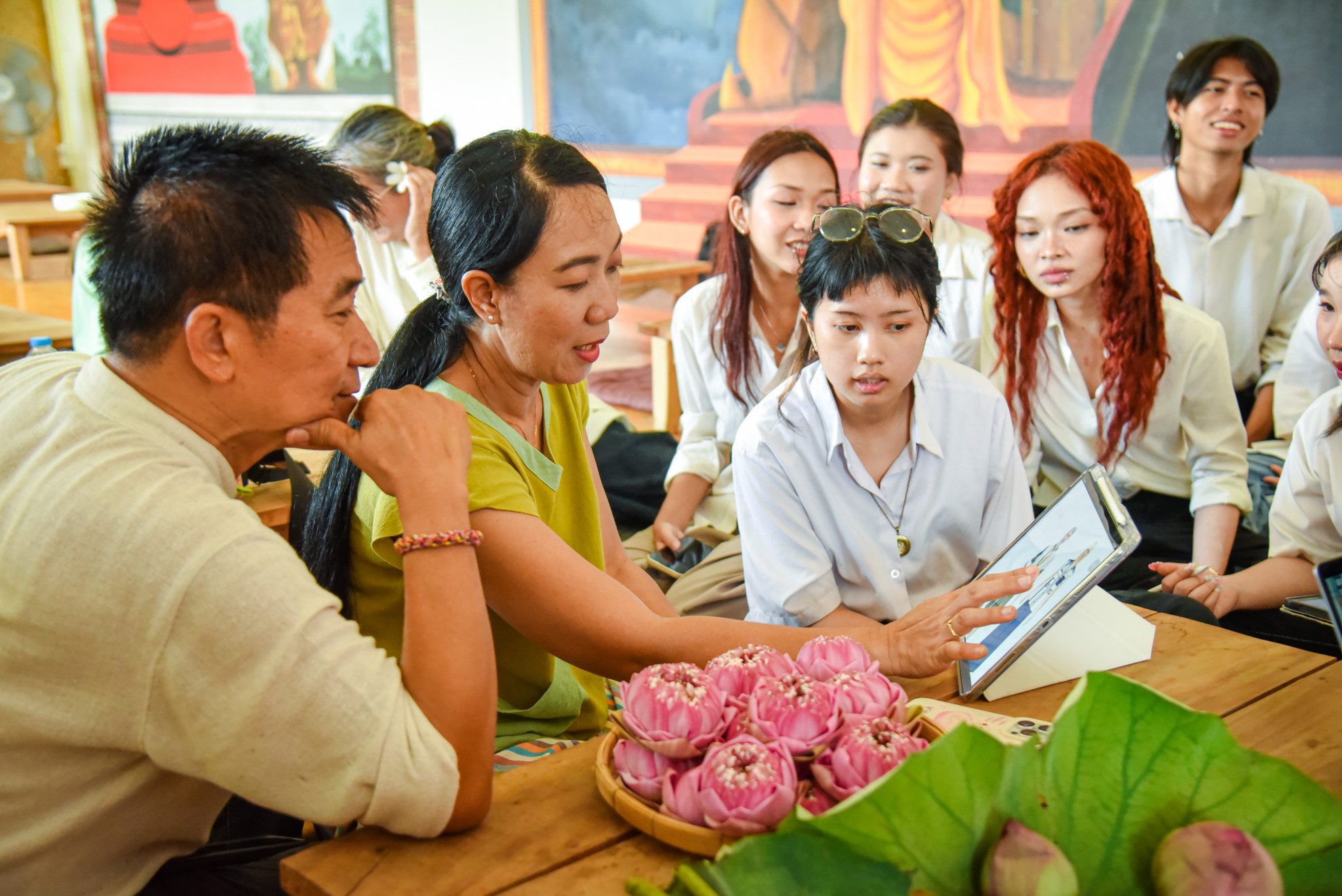





| Target | Indicator | Result |
|---|---|---|

SDG 4
QUALITY EDUCATION
|
||
| 4.3 By 2030, ensure equal access for all women and men to affordable and quality technical, vocational and tertiary education, including university | 4.3.1 Participation rate of youth and adults in formal and non-formal education and training in the previous 12 months, by sex | The project contributes to the participation rate of youth and adults in formal and non-formal education and training by actively engaging students, faculty, and community members in practical learning and skill development related to clothing design, product innovation, and entrepreneurship. Through workshops, training sessions, and collaborative design processes, both youth (university students) and adults (community enterprise members) have opportunities to enhance their knowledge and competencies. This aligns with the indicator by increasing access to vocational and non-formal education in a gender-inclusive manner, ensuring that participants from diverse backgrounds can equally benefit from the project’s capacity-building activities. |
| 4.7 By 2030, ensure that all learners acquire the knowledge and skills needed to promote sustainable development, including, among others, through education for sustainable development and sustainable lifestyles, human rights, gender equality, promotion of a culture of peace and non-violence, global citizenship and appreciation of cultural diversity and of culture's contribution to sustainable development | 4.7.1 Extent to which (i) global citizenship education and (ii) education for sustainable development, including gender equality and human rights, are mainstreamed at all levels in (a) national education policies; (b) curricula; (c) teacher education; and (d) student assessment | The project demonstrates the integration of education for sustainable development and global citizenship within higher education by embedding sustainability, creativity, and cultural identity into curricula, teaching practices, and community engagement. Faculty members apply innovative pedagogies that highlight gender equality, local wisdom, and human rights while students experience project-based learning that fosters responsibility toward society and the environment. The outcomes reflect how sustainable development values are mainstreamed into education through curriculum design, teacher practice, and student assessment, ensuring that graduates gain not only technical skills but also the mindset to contribute to inclusive and sustainable growth at both community and global levels. |

SDG 8
DECENT WORK AND ECONOMIC GROWTH
|
||
| 8.3 Promote development-oriented policies that support productive activities, decent job creation, entrepreneurship, creativity and innovation, and encourage the formalization and growth of micro-, small- and medium-sized enterprises, including through access to financial services | 8.3.1 Proportion of informal employment in non?agriculture employment, by sex | The project supports the reduction of reliance on informal employment in non-agricultural sectors by strengthening the capacity of the Cotton Design Community Enterprise to commercialize products and operate with more structured, sustainable business practices. By equipping community members with design, production, and marketing skills, the initiative creates opportunities for more stable, semi-formal or formal employment, particularly for women and youth who often dominate informal sectors. This helps improve job security, income stability, and social protection, while fostering inclusive entrepreneurial growth. |
| 8.9 By 2030, devise and implement policies to promote sustainable tourism that creates jobs and promotes local culture and products | 8.9.2 Proportion of jobs in sustainable tourism industries out of total tourism jobs | By promoting clothing products that combine local cultural identity with contemporary design, the project contributes to the growth of sustainable cultural and creative industries linked to tourism. These products not only serve as functional clothing but also as cultural representations that can attract domestic and international consumers and tourists. This strengthens the proportion of jobs connected to sustainable cultural tourism, supports creative livelihoods, and highlights the role of traditional craftsmanship in diversifying and sustaining tourism-related employment. |
The Creative Economy Entrepreneur Incubation Project: Year 5 (Academic Service Activity on Fashion Design and Development for the Cotton Design Community Enterprise, Pathum Thani Province) aims (1) to create prototype clothing products for the community enterprise and (2) to provide academic services to society while integrating with SDGs, research, innovation, and teaching. This initiative aligns with SDG 4 (Quality Education) by supporting Target 4.3—ensuring equal access to affordable technical and vocational education, and Target 4.7—promoting knowledge and skills for sustainable development through design, creativity, and innovation. At the same time, it contributes to SDG 8 (Decent Work and Economic Growth) by fostering Target 8.3—supporting productive activities, entrepreneurship, and innovation within community enterprises, and Target 8.9—promoting sustainable tourism and local cultural products that generate inclusive economic growth. Through the integration of education, design, and entrepreneurship, the project empowers local communities to enhance skills, preserve cultural identity, and strengthen sustainable economic opportunities.
Community Impact: The Cotton Design Community Enterprise in Pathum Thani has gained prototype clothing products that can be further developed into commercially viable items, enhancing the competitiveness of their products in both domestic and international markets.
University Impact: Faculty members have the opportunity to apply academic knowledge in real practice through collaboration with the community, thereby improving the quality of teaching and research. Students develop skills in design, teamwork, and creative problem-solving in real-world contexts, fostering valuable experiential learning. The project also enhances the university’s reputation as an institution that actively contributes to community development and drives the creative economy.
National Impact: The developed products serve as models for promoting Thai clothing that blends local wisdom with contemporary fashion, using appropriate materials and designs. This not only builds pride in Thai products but also promotes Thai cultural identity globally. The initiative aligns with national strategies to advance the creative economy, adding value to community products, generating income, creating employment, and expanding markets for Thai goods.
This impact strongly supports SDG 4 (Quality Education) by providing experiential, practice-oriented learning (Target 4.3, 4.7) that strengthens both academic and vocational skills, while simultaneously advancing SDG 8 (Decent Work and Economic Growth) by fostering entrepreneurship, innovation, job creation, and sustainable cultural industries (Target 8.3, 8.9). Through this integration, the project becomes a model of how higher education can drive sustainable community and national development.
.png)


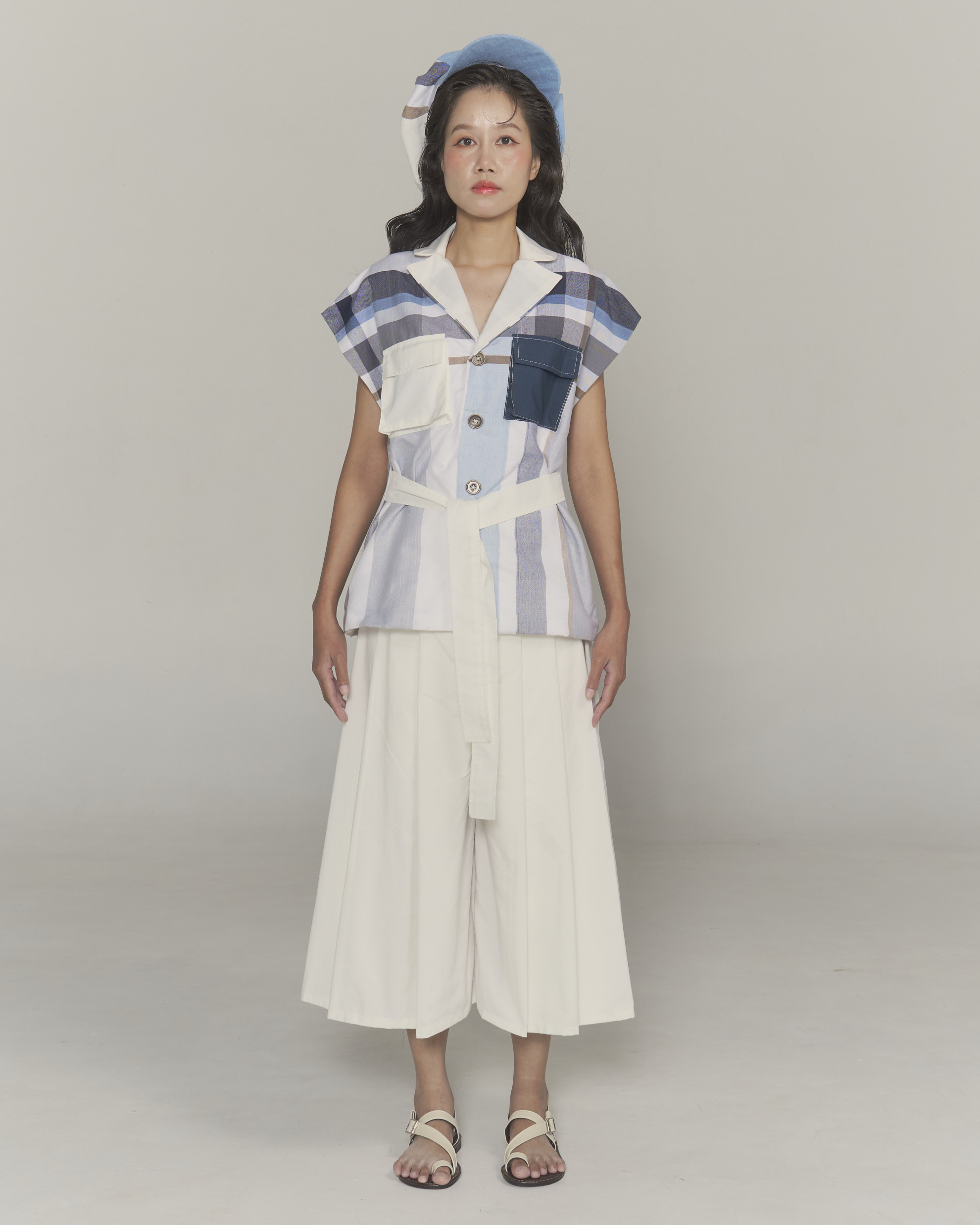



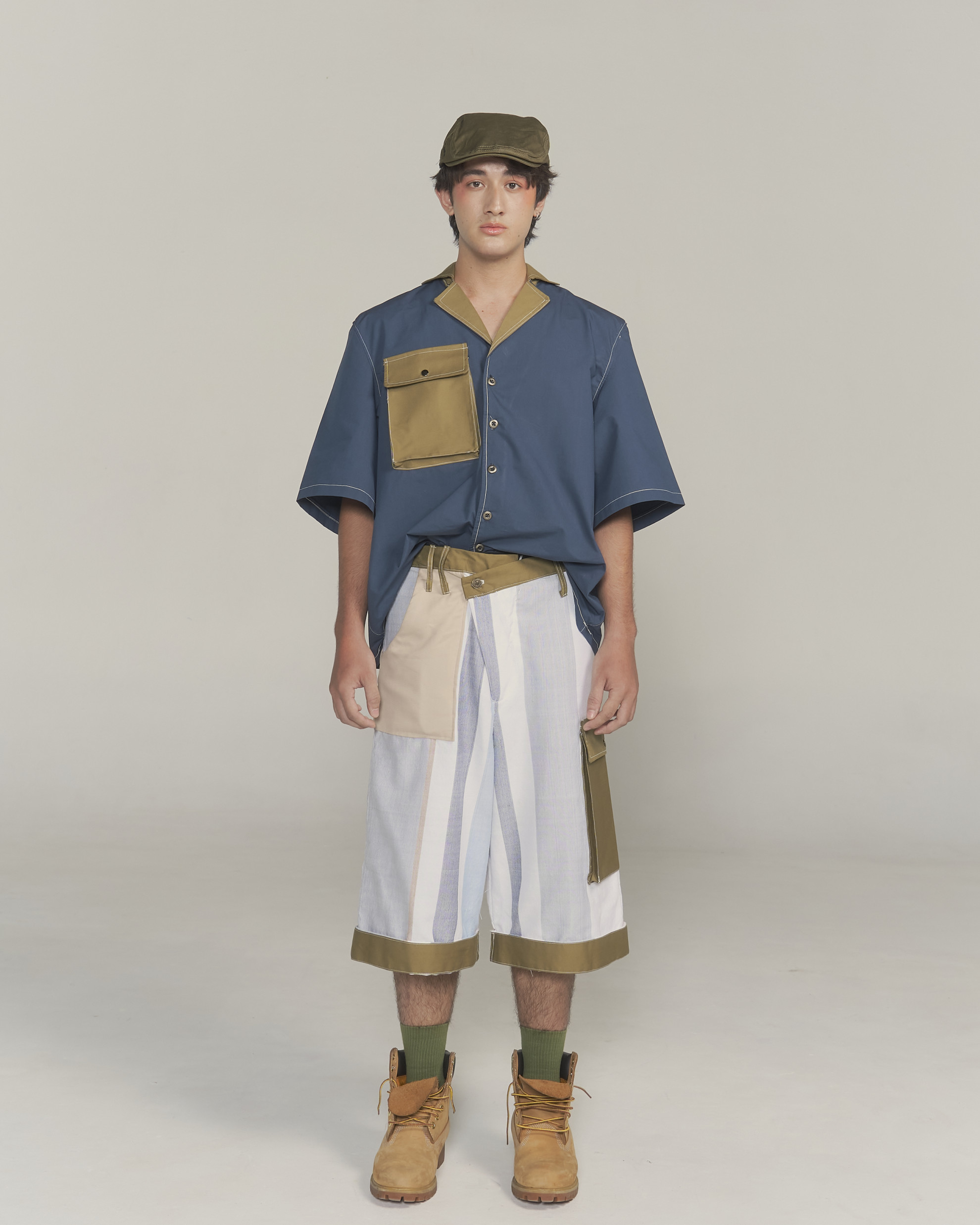
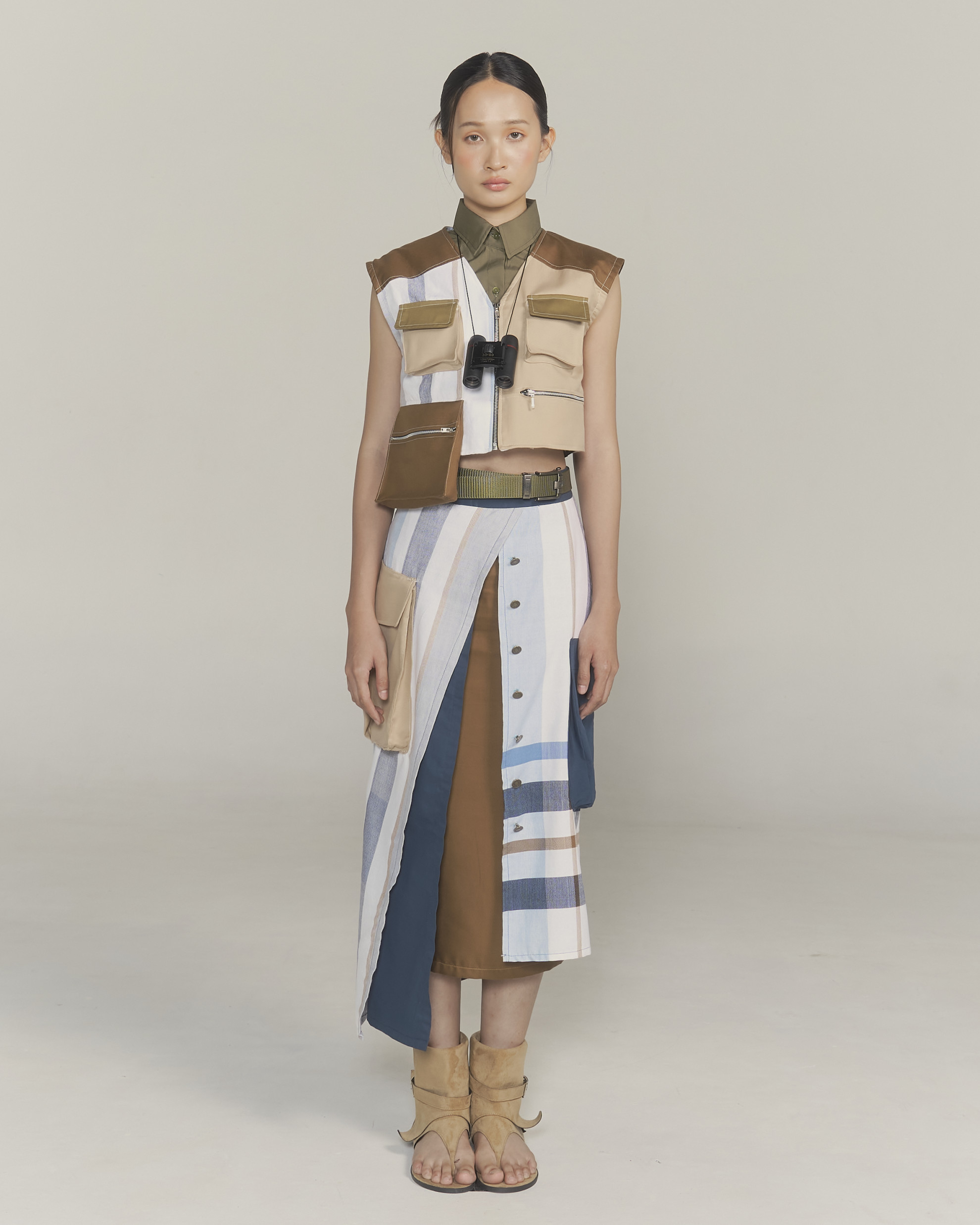
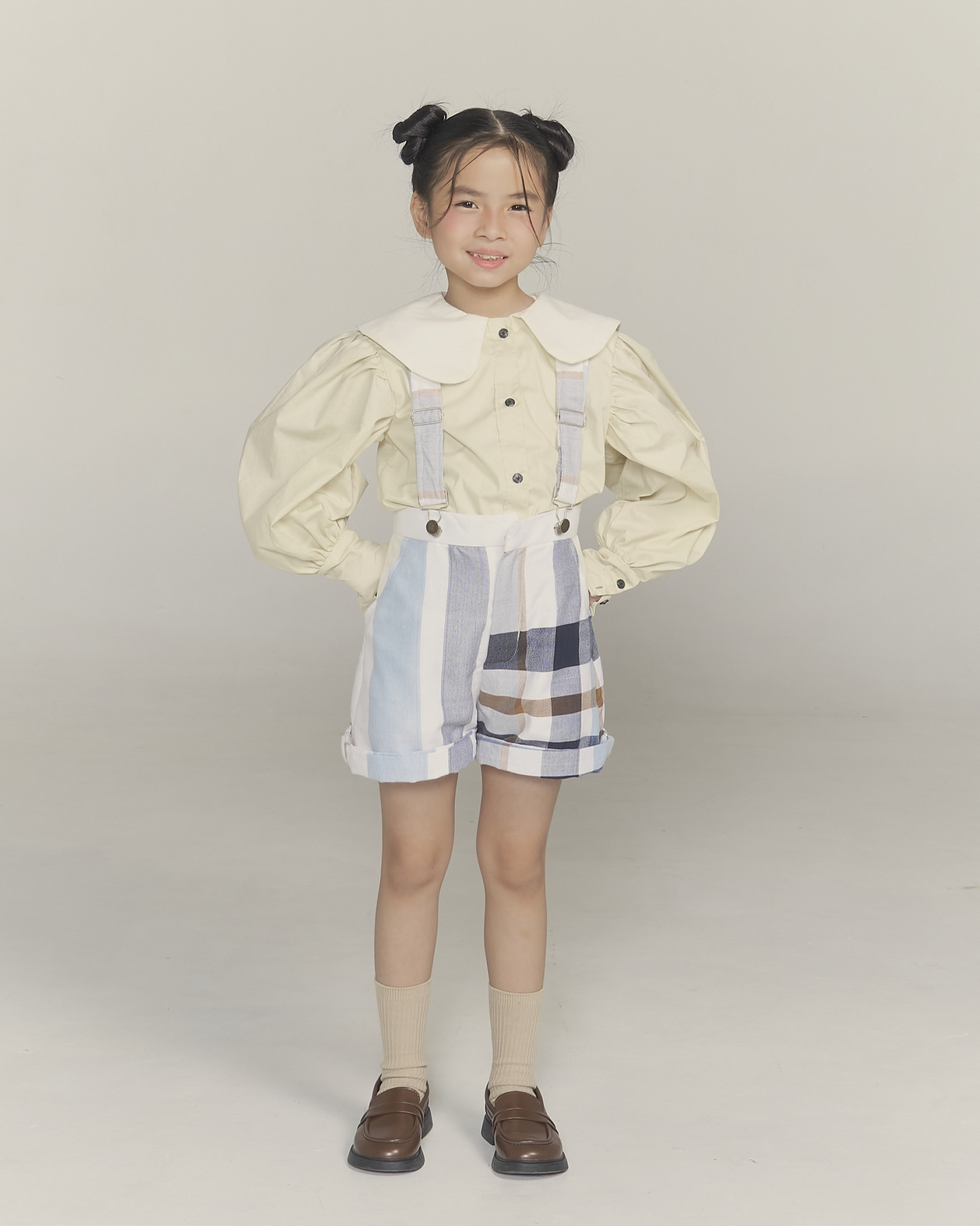

.png)










